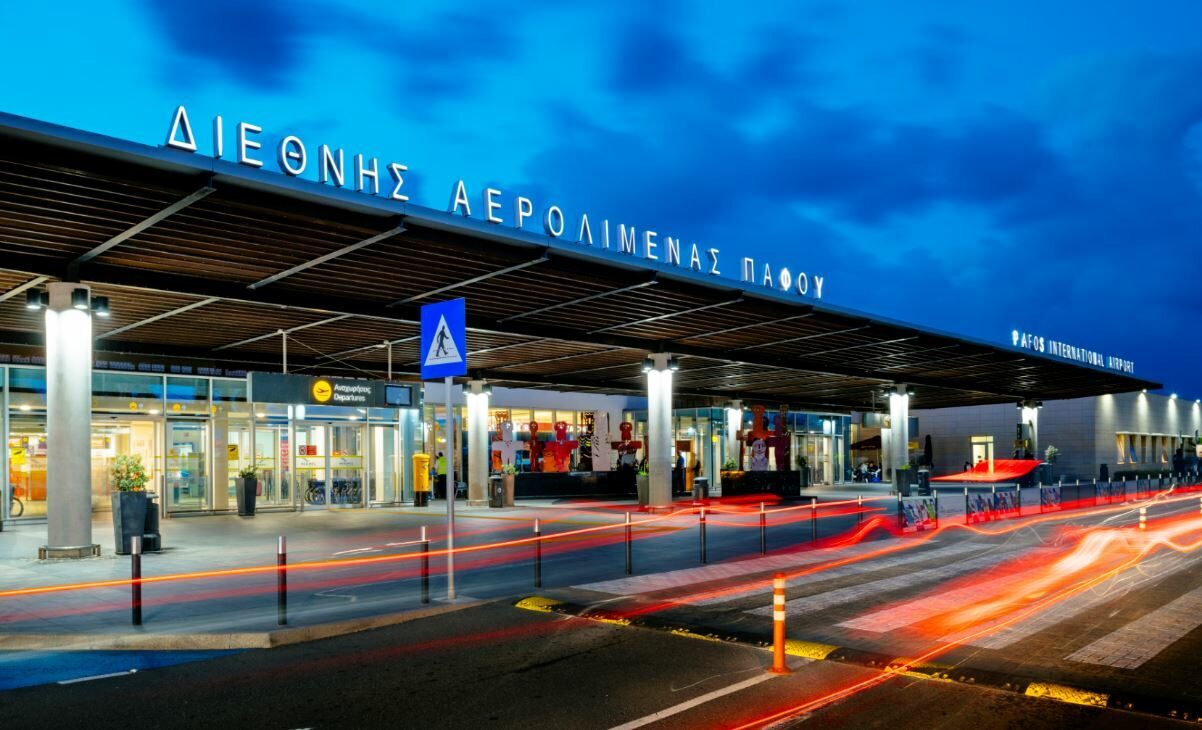Cyprus has been ranked second in Europe for improving air connectivity, while also closing 2025 with another strong year for tourism, according to Deputy Minister of Tourism Kostas Koumis.
Speaking during an event for World Tourism Day held on Monday night at the Larnaca Medieval Castle, Koumis said that a June 2025 report by the Aviation Council International placed Cyprus in second place across Europe in terms of improvements in air connectivity between 2019 and 2025.
He added that “this year is expected to close on a positive note for both arrivals and revenues, but more importantly it will once again leave a positive footprint on businesses in the sector, which is of particular importance to the administration of Nikos Christodoulides”.
The deputy minister spoke of what he called “hopeful messages” emerging from special forms of tourism, as well as the fact that “off-peak months are showing significant signs of improvement in both arrivals and revenues”.
He said this was “especially encouraging in the effort to extend the tourist season, which is the path towards establishing year-round tourism”.
Turning to this year’s theme chosen by the World Tourism Organization, “Tourism and Sustainable Transformation,” Koumis said this was another attempt by the organisation to show that “tourism and good hospitality cannot coexist unless a universal transition to the next day is secured on the basis of sustainability principles, in every country and every destination”.
He continued by saying that “it is important for everyone to understand that the side effects of climate change are more intense in the Mediterranean region, and according to scientists the temperature here is rising 20 per cent faster than in other parts of the planet”.
This demonstrates, he said, that Mediterranean states, including Cyprus, “face a more difficult path compared to other regions when it comes to the negative impact of climate change on tourism”.
He added that this “makes Cyprus’ responsibility greater“, while also intensifying the need for the public, semi-public and private sectors to once again join forces”.
Moreover, Koumis explained that “it is now commonly accepted that if Cyprus wants year-round tourism, destinations must be enriched with additional features beyond the strict framework of tourist services”.
“More importantly,” he continued, “this vision must be shared by everyone who is part of the tourism ecosystem, either directly or indirectly“.
In this new environment, he said, “positive results should not be taken for granted in the years to come”.
“To maintain and strengthen its position”, he mentioned, “the sector requires a change in mentality, investment in knowledge and certainly institutional interventions where needed, because only then will it be possible for tourism to move towards a sustainable and integrated development model”.
He pointed to clear priorities set by the Deputy Ministry of Tourism, which include improving and enhancing individual destinations with particular emphasis on infrastructure.
Other points of focus involve boosting hospitality facilities in the mountainous and rural areas, investing in knowledge through updated training programmes across Cyprus, and further strengthening cooperation between the public and private sectors.
Another priority, he said, is “investment in sustainability and technological developments, since artificial intelligence already influences tourism and will do so even more in the future”.
For this reason, he explained, the ministry has decided to co-organise a seminar with the Deputy Ministry of Research and Innovation, hoping for positive industry participation.
Looking to the country’s successful tourism history, Koumis said it was “considered appropriate to launch an important collaboration with the Cyprus University of Technology (Tepak) to record the history of Cyprus tourism“.
He said that this action has just begun and “represents an investment in bringing past, present and future together”.
Through academic research, interviews and the collection of historical material, the ministry hopes the past can act as a guide for the future of Cypriot tourism.
He also said that “tourism has always been a highly competitive industry internationally” and stressed that the institutional mission of the Deputy Ministry of Tourism is to lead the sector successfully into the next day.
Koumis further stated that “despite the many adversities of the last three years, the goal of returning to strong performance and stabilising it has been achieved”.
He continued by saying that “the biggest responsibility now is the transition to the next day for tourism, which is also reflected in this year’s accompanying motto of the World Tourism Organisation”.
“The transition to the next day on the basis of sustainability principles”, he said, “is the only path, with emphasis and respect for environmental protection, investment in knowledge and parallel investment in responsible economic efficiency”.
Koumis pointed out that “harmonious cooperation between all stakeholders and everyone who makes up Cyprus’ tourism ecosystem is a prerequisite for a successful transition to the future”.
He concluded by saying that “by joining forces for the future of Cyprus tourism, with renewed goals and vision, the sector can move forward, because with its well-recognised contribution to the economy, tourism in Cyprus has always been a shared responsibility”.






Click here to change your cookie preferences